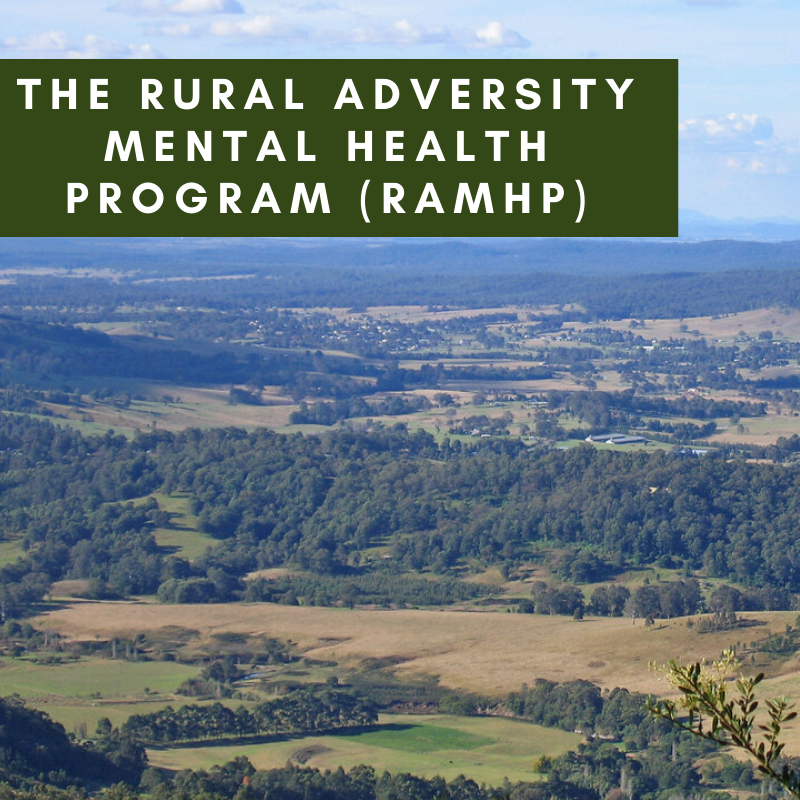The Rural Adversity Mental Health Program (RAMHP) has 20 Coordinators based across regional, rural and remote NSW who inform, educate and connect individuals, communities and workplaces with appropriate services and programs. We link people to local mental health services and resources, we educate workplaces and communities about mental health and wellbeing and we respond in times of natural disasters and severe adversity.
RAMHP has been working alongside individuals and communities for years throughout drought, providing information about managing stress, taking care of yourself and having a conversation with someone you’re worried about. During the bushfires, we were in communities letting people know that the way they felt, whether sad, worried, shocked or angry, was normal and provided resources to help people manage strong emotions and begin to rebuild. And now, through this COVID-19 crisis we provide the following information to those same communities, the ones in which we live and work, in order to keep people safe and resilient.
The current COVID-19 (Coronavirus) outbreak may be causing feelings of anxiety and stress for many people.
Everyone reacts differently to situations. It’s important to recognise that it’s common and normal to experience emotions such as stress, sadness and confusion as well as feeling scared or angry in crises such as this.
People might begin to worry more and engage in reassurance-seeking, repeated checking of social media, avoidance, isolating, disengaging from activities or loved ones.
Factors such as uncertainty about the future, sensationalist media coverage and a tendency to be overly influenced by others (panic buying) play a part rather than relying on your own information.
TIPS FOR MANAGING STRESS
- Be aware of your own thinking
- Focus on finding solutions right now
- Come up with a plan of action
- Focus your attention on things within your control
- Stick to trusted sources of information (WHO and NSW Health)
- Limit time engaging with media and social media
- Be aware of helpful versus unhelpful social conversations
- Try to maintain a healthy routine
- If you feel overwhelmed, talk to your GP
For further information head to our website www.ramhp.com.au for downloadable resources or use the postcode search to find your nearest coordinator who can provide more personalised information over the phone.

